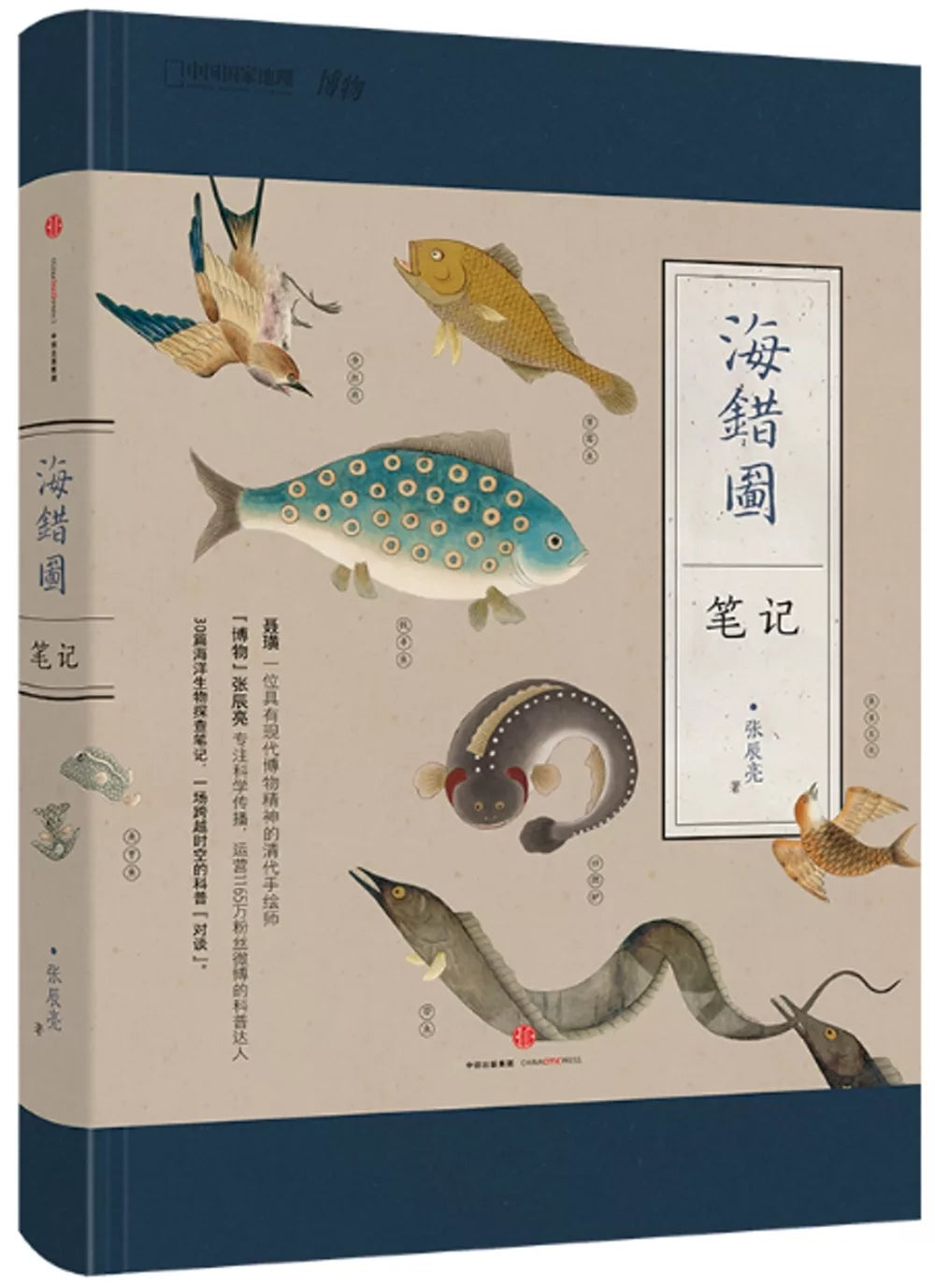1
/
of
1
Notes on the Illustrated Book of Sea Monsters
Notes on the Illustrated Book of Sea Monsters
Zhang Chenliang
Regular price
$23.99 USD
Regular price
Sale price
$23.99 USD
Unit price
/
per
Low stock
Couldn't load pickup availability
About Book
About Book
The "cuo" in haicuo means a wide variety and complexity.
"Illustrated Collection of Haicuo" was drawn by Nie Huang, a painter and biology enthusiast in the Qing Dynasty. It depicts more than 300 species of creatures, covering almost most of the major groups of invertebrates and chordates, and also records many coastal plants. It is a wonderful book with a modern natural history style.
However, due to the limitations of the time, the book contains many unreliable parts. For example, Nie Huang had never seen some animals in person, and his drawings were based solely on descriptions by others, which can lead to significant distortions. The records of the animals' habits are also a mixture of truth and falsehood.
That's why when I began to analyze and examine the creatures in "Haicuo Tu" from today's biological perspective, I discovered clues from his texts and paintings, distinguished the authenticity, and after step-by-step reasoning and analysis, I identified the true identity of the creatures in the paintings - it was like solving a case, and it was very satisfying.
During this time, I also traveled to Liaoning, Fujian, Guangdong, Guangxi, Tianjin, Japan, Thailand, and other places to collect materials and conduct field research. It's been over a year and a half now, and I've already written 30 articles. The "deciphering" process will continue, and I'll initially compile them into a book, "Notes on the Illustrations of Haicuo," for your enjoyment.
In this book, I've adopted the classification system of traditional Chinese herbal medicine, categorizing organisms into four groups: "Jiabu, Squama, Insect, and Bird," to demonstrate how the ancients categorized organisms. This book includes popular science on marine life, textual research from archived documents, anecdotes about the relationship between the Chinese and the sea, and some personal reflections. Simply put, these are 30 notes I took while reading "Hai Cuo Tu." I'd be delighted if you find this book interesting and meaningful.
——Zhang Chenliang
"Illustrated Collection of Haicuo" was drawn by Nie Huang, a painter and biology enthusiast in the Qing Dynasty. It depicts more than 300 species of creatures, covering almost most of the major groups of invertebrates and chordates, and also records many coastal plants. It is a wonderful book with a modern natural history style.
However, due to the limitations of the time, the book contains many unreliable parts. For example, Nie Huang had never seen some animals in person, and his drawings were based solely on descriptions by others, which can lead to significant distortions. The records of the animals' habits are also a mixture of truth and falsehood.
That's why when I began to analyze and examine the creatures in "Haicuo Tu" from today's biological perspective, I discovered clues from his texts and paintings, distinguished the authenticity, and after step-by-step reasoning and analysis, I identified the true identity of the creatures in the paintings - it was like solving a case, and it was very satisfying.
During this time, I also traveled to Liaoning, Fujian, Guangdong, Guangxi, Tianjin, Japan, Thailand, and other places to collect materials and conduct field research. It's been over a year and a half now, and I've already written 30 articles. The "deciphering" process will continue, and I'll initially compile them into a book, "Notes on the Illustrations of Haicuo," for your enjoyment.
In this book, I've adopted the classification system of traditional Chinese herbal medicine, categorizing organisms into four groups: "Jiabu, Squama, Insect, and Bird," to demonstrate how the ancients categorized organisms. This book includes popular science on marine life, textual research from archived documents, anecdotes about the relationship between the Chinese and the sea, and some personal reflections. Simply put, these are 30 notes I took while reading "Hai Cuo Tu." I'd be delighted if you find this book interesting and meaningful.
——Zhang Chenliang
Publication Date
Publication Date
2016-11-01
Publisher
Publisher
中信出版集团
Imprint
Imprint
China National Geographic
Pages
Pages
240
ISBN
ISBN
9787508669069
share

